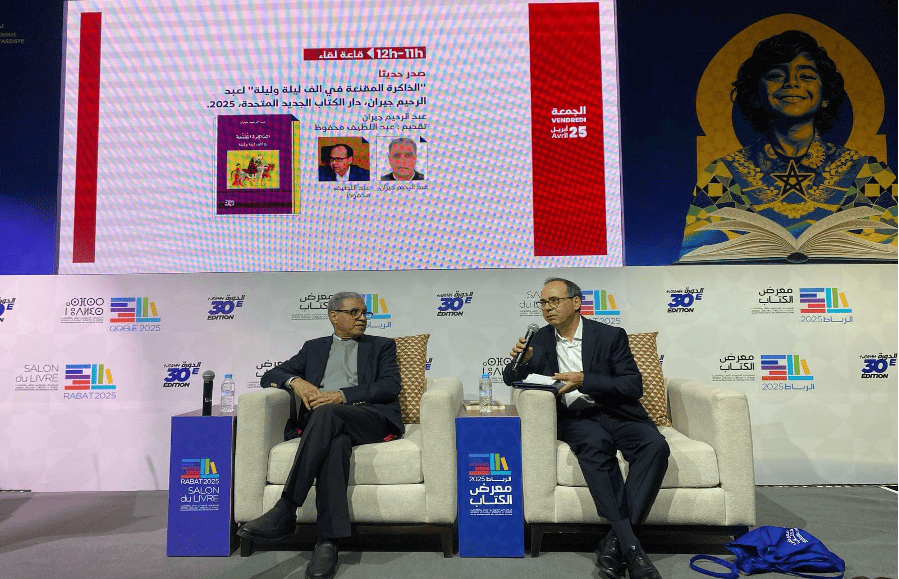
A Thought-Provoking Book Launch at the International Publishing and Book Fair

A Thought-Provoking Book Launch at the International Publishing and Book Fair

A Thought-Provoking Book Launch at the International Publishing and Book Fair
Under the esteemed patronage of His Majesty King Mohammed VI, the International Publishing and Book Fair hosted a compelling literary panel on April 24, 2025, celebrating the launch of “The Masked Memory in One Thousand and One Nights” by Moroccan writer Abderrahim Jirari. The session, moderated by Abdelhafid Mahfoud, offered a deep dive into the symbolic layers of memory, identity, and cultural heritage explored in this newly released book.
Abdelhafid Mahfoud opened the discussion by highlighting the intellectual courage of the work. He described it as a powerful critique of the Arab world’s historical stagnation, tracing its roots back to the Caliphate era. According to Mahfoud, the book challenges the West’s persistent attempts to strip the Arab world of its ownership over One Thousand and One Nights, offering instead a reasoned and elegant rebuttal grounded in refined and accessible language.
Author Abderrahim Jirari expanded on his analysis of the legendary tales, emphasizing the importance of understanding the historical and cultural context in which they were narrated. “If we don’t grasp the context, we won’t understand the stories,” he said. Jirari argues that One Thousand and One Nights serves as a lens through which we can read the silences of history, especially the untold story of King Shahryar, who, despite his mythical fame, was a real figure from the Sasanian Empire with a short-lived reign. In this sense, it is not Scheherazade who tells the tale, but the chronicler behind her, revealing layers of narrative manipulation and historiography.
The concept of “masked memory,” which serves as the book’s title, refers to the narratives hidden beneath the surface that shape identity without being directly told. Jirari introduces the idea of ta’assul (deep-rootedness), challenging the traditional idea of a pure cultural origin. He argues that identities and texts are inherently mixed and evolving. While the authorship of Kalila wa Dimna is known and well-documented, One Thousand and One Nights remains shrouded in anonymity, further emphasizing the blurred lines between authorship, memory, and origin.
“The Masked Memory in One Thousand and One Nights” is a direct invitation from Abderrahim Jirari to his readers to rethink history, authorship, and the Arab intellectual legacy. As the book fair continues to celebrate the richness of Arab literature, this work stands out as a beacon of critical thought and cultural self-awareness.
